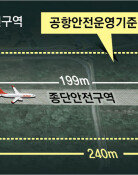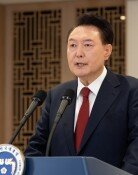Marking 25th anniversary of Korea-Vietnam diplomatic ties
Marking 25th anniversary of Korea-Vietnam diplomatic ties
Posted December. 21, 2017 09:21,
Updated December. 21, 2017 09:35
“Bun cha,” grilled pork and noodle served with dipping sauce, “banh mi,” Vietnamese baguette sandwich, and “banh xeo,” fried pancake, these are only some of many Vietnamese dishes loved by young Koreans in their 20s and 30s. The Vietnamese noodle soup “pho” has already become office workers’ favorite lunch menu in Korea while “goi cuon,” widely known as Vietnamese wraps or spring rolls, has long been on the menu for newly-weds’ housewarming.
Vietnam has also emerged as the most favorite outbound tourist destination in Korea. According to the statistics published by the Korea Tourism Organization, Vietnam topped the list of most visited country in Southeast Asian, overtaking Thailand, for the first time in the first half of this year. This change is attributable to the country’s efforts to open and reform the society, as evidenced by the remarkably growing Vietnamese economy since the economic reforms called Doi Moi policy launched in 1986.
South Korea and Vietnam mark the 25th anniversary of establishing diplomatic ties Friday. As the saying goes, after a storm comes a calm. The once strained bilateral relationship prompted by Korea’s dispatching troops to the southeastern nation during the Vietnam War, has now become the cooperative one. To Vietnam, Korea is the largest foreign investor and third largest trading partner. The two countries are actively involved in personal exchanges. Many Korean coaches are leading the Vietnamese national team for shooting, archery and soccer. Besides, among multicultural couples who tied the knot in Korea last year, the proportion of Vietnamese women account for 27.9 percent, outstripping that of Chinese brides. As they start a family, the bond between Korea and Vietnam will be further strengthened.
Vietnam is a country who won a war against the United States, the world’s superpower, and cannot be looked down on by its neighbor China. Where does such sense of power come from? The answer is in the words of Vietnamese communist leader Ho Chi Minh, also known as founding father when he made an agreement with France to fight against the United States: “We respond to changes with what doesn’t change.” That is, the country’s power comes from flexibility, which refuses no enemy for the sake of national interest. It appears Vietnam wants to follow in the footsteps of South Korea, who had risen from pains of the colonial rule and ashes of the war and achieved a miraculous economic development. However, Korea has things to learn from the country. They include a future-oriented mind that accepts the reality and pursues practical interests instead of obsessing with causes or ideologies, and unity of the people who support the nation’s decision without quarrelling among themselves.






